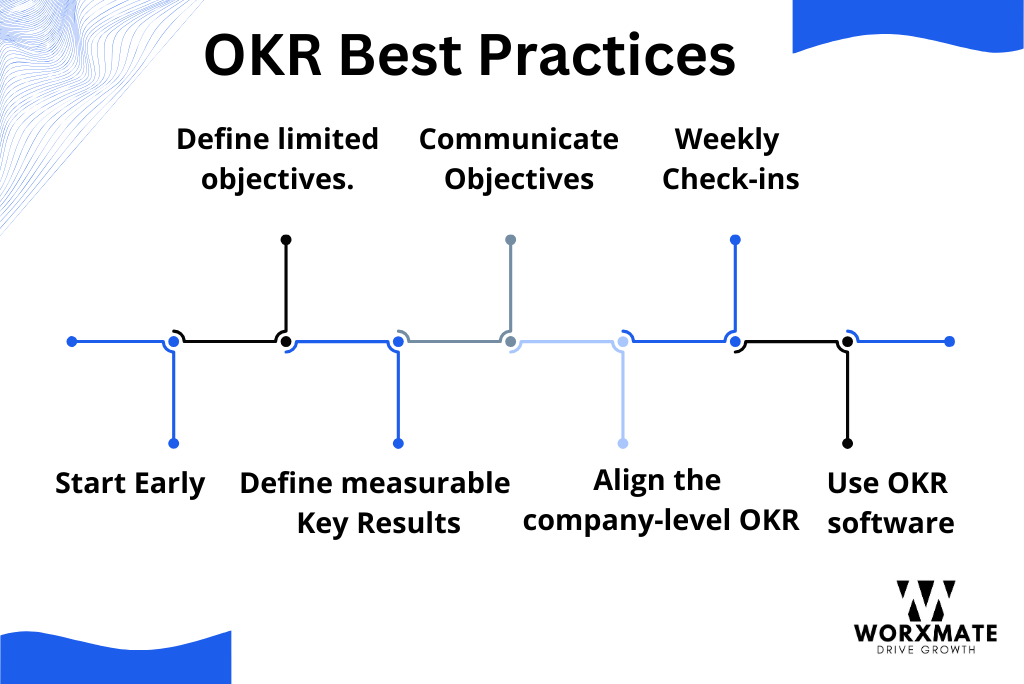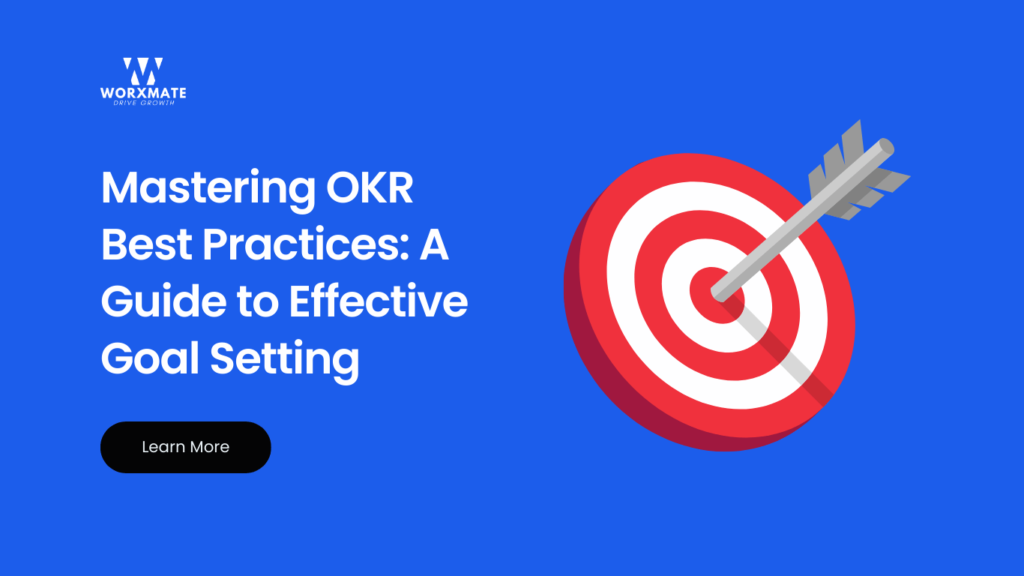All organizations are on a constant search for ways to improve performance and achieve goals. OKR methodology provides a systematic approach for goal setting, which helps teams to focus on what truly matters and build collaboration towards achieving common goals.
According to 26% of leaders, in project management biggest problem is managing cross-team collaboration. This is where OKRs can help organizations in reaching to their goals effectively, enhance collaboration, increase focus across all levels of organizations.
To fully benefit from OKR methodology it is important to follow best practices that have been proven to improve alignment and collaboration and boost outcomes significantly.
Let’s Understand the Mastering OKR Best Practices:
Start Early
Starting the OKR process early gives you plenty of time to organize teams, define clear goals and important outcomes, and monitor progress efficiently. It gives more time to decide priorities and set the resources to proper use for better results.
Define limited objectives
By concentrating on a small set of goals, teams can avoid overstretching themselves and instead focus on the things that are important. Ideally the number of objectives should be 3 to 5 for organizations who are doing it for the first time.
Communicate Objectives
Transparency is key in OKR implementation. Sharing goals with the entire team promotes collaboration, alignment, and a shared commitment to reaching targets.
Define measurable Key Results
Key results which are specific, measurable and time bound act as a strong base and indicate the progress towards the achieving the set objectives. By defining clear metrics and deadlines, teams can track their performance effectively, identify areas for improvement, and celebrate successes along the way.
Align the company-level OKR with the department-level OKR
When departmental goals and company-wide objectives are in line, it guarantees that everyone is working toward the same goal. Teams can focus their efforts on achieving the common goals and contribute to overalls success of the organization when there is a proper alignment between the employees. This alignment also promotes collaboration, transparency in the organization.
Weekly Check-ins for tracking the progress
Regular check-ins help teams to stay on track and address the changes effectively and take appropriate actions whenever needed. These time-to-time interaction provide proper feedback, progress tracking and problem solving, ensuring that all teams are responsive to changing circumstances.
Use Worxmate OKR software to set and track goals
Using Worxmate OKR software simplifies the goal-setting process, which helps teams in real-time tracking of progress, and gives valuable insights for decision-making. By using OKR software, organizations can focus on the goal-setting process, track progress, and gather actionable insights to make data driven decisions based on real-time data

OKR writing Best Practices
Use simple language
While writing OKRs, using clear which helps in communicating objectives effectively and ensures understanding across all departments.
Define organization level OKRs first
First set top-level objectives before cascading them down to departmental or individual goals.
Initially focus on 2 to 3 objectives only
Limiting the number of objectives allows teams to prioritize effectively and focus their efforts towards achieving important results.
Each objective should have 3 to 5 Key Results
Having a few key results per objective provides clarity on what needs to be accomplished to reach the desired outcome.
Encourage Transparency and Accountability
Encourage an environment of transparency where advancements, difficulties, and outcomes are freely discussed to encourage ownership and cooperation.
Involve the Whole Team
Including team in the process of the OKR setting builds a sense of ownership among teams.
Here are common mistakes to avoid while writing OKRs
- Setting Too Ambitious Goals
- Not Setting Specific Objectives
- Setting and Forgetting Goals
- Neglecting Key Results
- Setting Too Many OKRs Per Quarter
- Failing to Create Alignment in Teams
- Not Tracking Progress
- Not Learning from Data
- Expecting Immediate Results
- Lack of Training and Education
Conclusion
Understanding OKR best practices involves more than simply goal setting; it includes creating an environment of responsibility, openness, alignment, and continuous growthz
By starting early, defining clear objectives and key results, and building a culture of transparency, organizations can fully benefit from OKRs and push themselves to succeed.
Mastering OKR best practices is of prime importance for organizations who are looking to drive growth and achieve their goals effectively.



